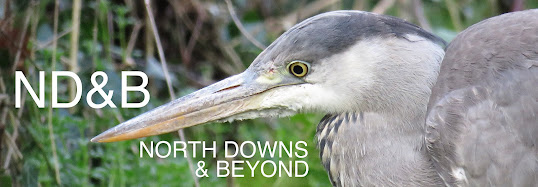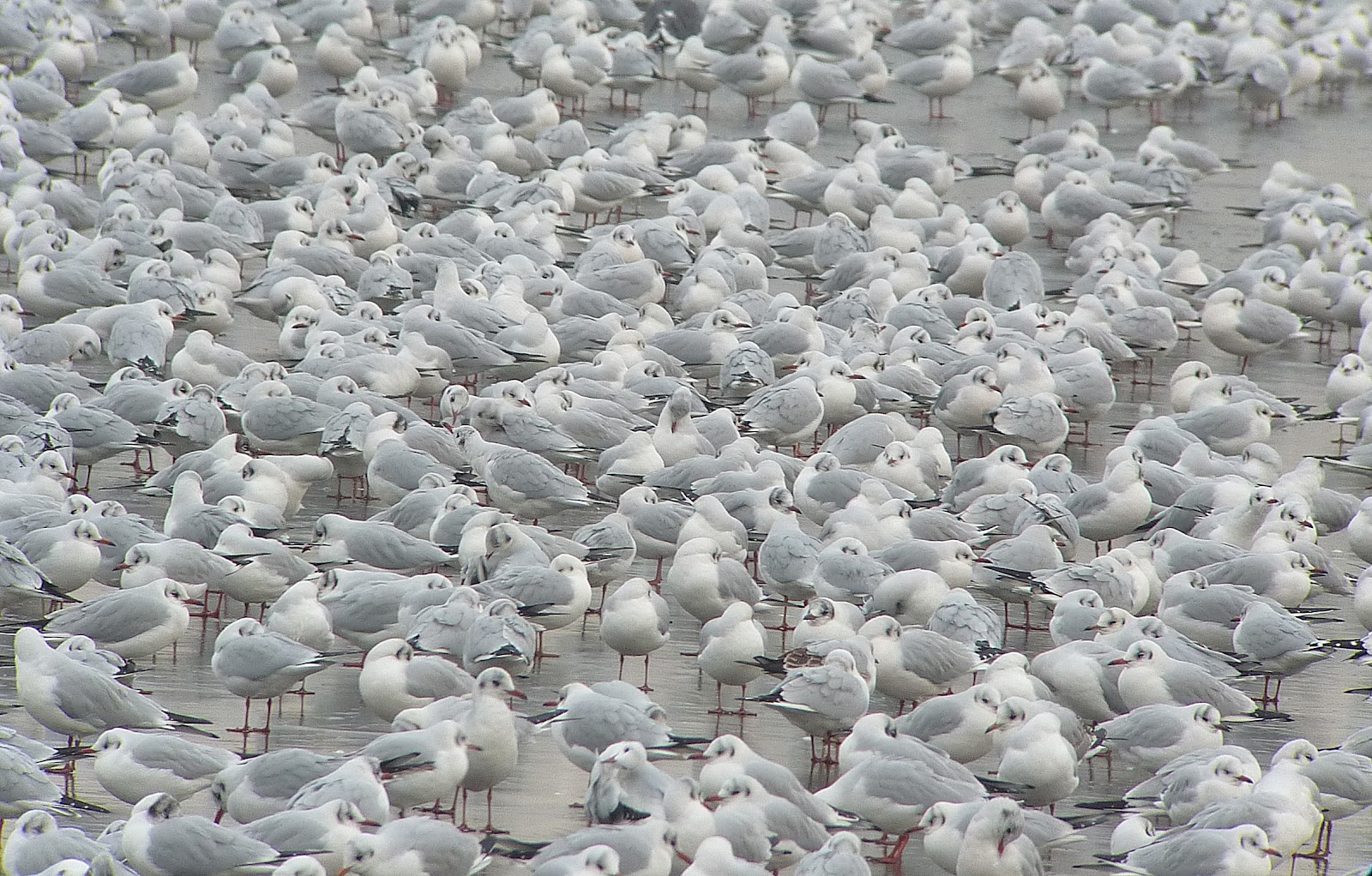Birding. Why and what does it mean?
It might seem a simple question to answer. We tend to start off with a desire to identify what birds are in our presence and to record what we find by making a list. As time goes on we begin to make several lists, that of species seen within differing borders, at varying times of year and of many parameters. We identify and we collect. But, with advancing age - and experience - this does not cut the mustard. Our outlooks mellow, out age bestows upon us a certain sagacity (whether that is earned or not). We want more from what we have done, unquestioned as it might have been for many years. To 'just do' can become nothing more than a means to an end, something to fill in the time, to keep us amused, to act as a deterrent to stop us from wasting time that might otherwise be spent doing less meaningful things. Too much over thinking? Maybe, but that doesn't mean that it isn't a worthwhile exercise.
I'm just about to hit 65 and have recently lost a few birding role models and friends. Such events demand a looking at life. I was struck by a blog that I posted back in 2017, commenting on a notebook that I had been keeping for a number of years:
Back in 1975 I purchased a medium sized hard-backed notebook, narrow feint of line and blue of colour. It became my 'book of lists'. One such list was my bird species total for each year. Across an open spread I drew columns, each a centimetre wide, and after allowing for a generous space in which to write the bird species name, there were 26 columns - the first being for that current year, 1975. I was 16 at the time, and all of those blank columns represented to me a vast period of time - they would take me up to the year 2000, which sounded back then like a construct of science fiction, and the year in which I would celebrate my 42nd birthday. It was so far away that it really didn't warrant any thought at all. They were just there.
The years slowly passed, and they then picked up speed as they do when you grow older. Life happened. I left college. I started a career. I got married. We had children. And shortly before those columns were due to be finally filled, I became seriously ill. And it came to pass that the final column, for the year 2000, was completed and I turned over the page to start drawing another set of 26 columns, but stopped. 26 columns.... they would represent 26 years. They would take me up to 2026 when, if I were still alive, I would see my 68th birthday. No, this didn't seem the right thing to be doing, so I put down my pen and ruler and shut the book. I was still ill (and it would be another four years of treatment before I could consider myself to be well again). Would I be tempting fate to draw those lines? Would my presumption be waving a red rag at fate? Either way, those blank columns seemed to represent my life in a distilled and disturbing way. They never got drawn.
Well, that 68th birthday is now just three years away, and if I had carried on with my 'ruling out of the columns' I would be looking forward to having to do so again, which would then take me up to my 94th birthday. That is an age that I do not expect to meet. That's being realistic, not fatalistic. So, as we (I) start to creak into later age, does birding possess the same values as it did all those years ago? Well, yes... and no.
My early birding days were filled with awe. I just could not wait to get out into the field and see what was there. Yes, unusual species had a certain cache, but that wasn't what necessarily drove my enthusiasm. It was a sense of wonder - a wonder that was fuelled by discovering birds that could be found close to home. The searching for birds then spread out to the coast, to islands just off-shore of Britain and then countries thousands of miles away, but at the root of it all was the wonder, the sheer joy of finding species that spoke of the diversity that the natural world provided - and not just birds, but insects and plants as well. If you looked, you found, and you saw.
It might be supposed that after many years of 'looking' and 'seeing' the novelty might wear off. It doesn't. It gets stronger. Having been privileged enough to be able to spend time out in the field over many years enables you to appreciate the sheer pleasure in doing so. As time creeps on you lose friends and family. You suffer your own set-backs. The ability to walk out the front door with a rucksack full of optics becomes not so much a right but a gift - hence, what you then see is something that cannot be taken for granted.
Example - I was walking through Epsom town centre on Wednesday morning and, looking up into a baby blue sky watched a flock of 100 Woodpigeons pass overhead, a stately procession. I almost cried. Yes, there were only 100, and yes they were just Woodpigeons, but the stately manner in which they flew over me, the simplicity of that passage and the beauty of the colour palette before me spoke volumes. If, after 50-odd years of birding such a simple observation can reach inside me with such power, then I am truly blessed.
I may bleat on about the fall in bird numbers, the lack of passage migrants and my inability (recently) to find those special birds, but in all honesty they are ALL special. No time in the field is wasted or unrewarded. We go out and record so that we as individuals become knowledgable about our birdlife. And, as a major byproduct, we enrich our souls. Maybe the byproduct is, in fact, our real reward. I'm now in a place where my birding has two major threads - (1) To act as a balm in this mad world and (2) to enable me to help document the state of the world's birds. I am lucky enough to throw moths, butterflies and plants into the mix. I like to think that I may have played a small part in the ability of future naturalists to look back at late 20th and early 21st-century with some certainty as to what the state of the wildlife was. That is, to be honest, all that I need as an incentive to carry on looking. And if that is not enough then those moments when I can look up into a blue urban sky and be moved by a flock of common birds will do nicely as an alternative.
So, to answer the initial question - 'Birding - why and what does it mean?' Well I know what it means to me. But I would suggest that the answer to this question will vary between each and every one of us. It's what makes birding (and wider natural history study) such a marvellous thing.



Comments
See, doesn't matter at all. Lighten up. And attempt a sense of humour while you're at it.